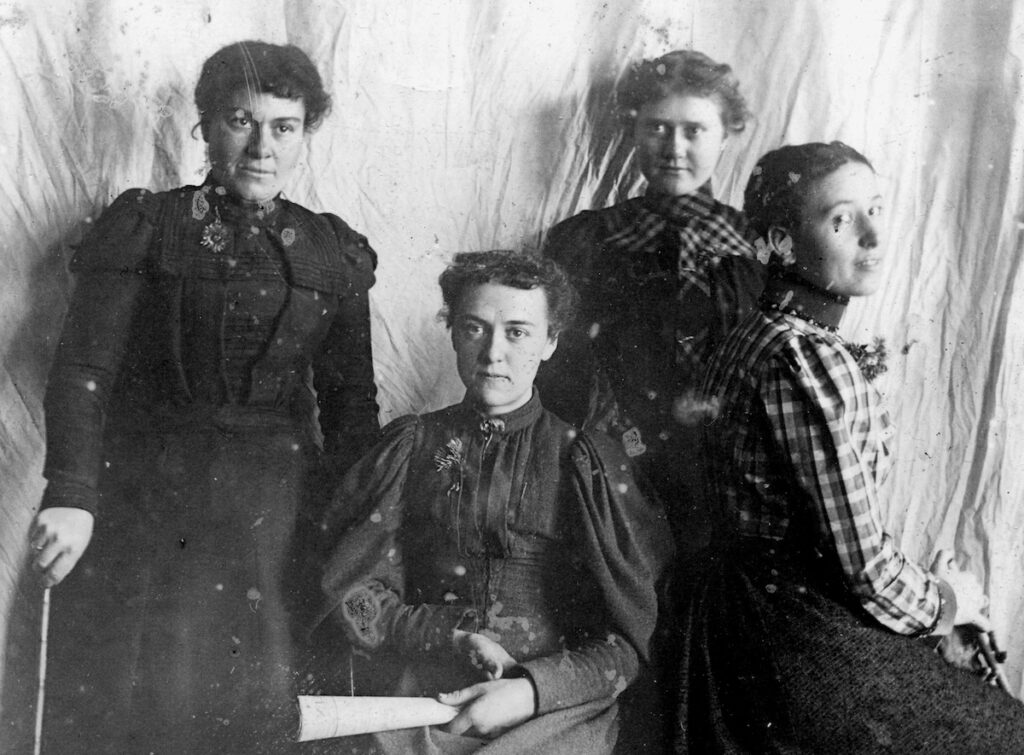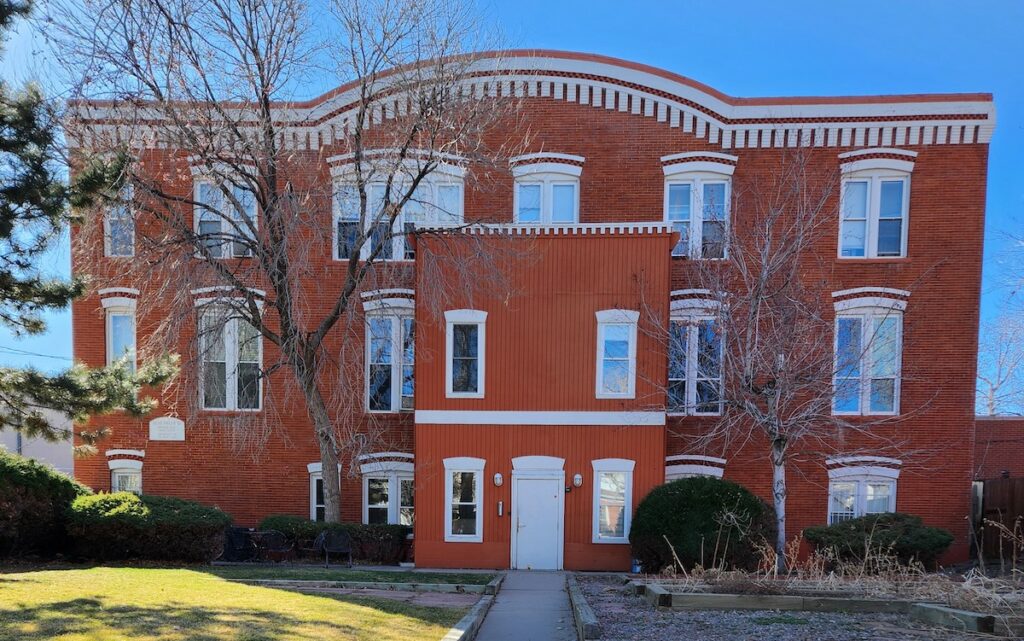By Rebecca A. Hunt
March is Women’s History Month. As it happens, I have more material on the accomplishments of early Northside women than I can do in one month. So, I will be writing a series of women’s history columns. This month I will share the story of Dr. Rose Kidd Beere and the State Home for Dependent and Neglected Children, which was housed in our neighborhood.
For April, in honor of Earth Day, I will document the role of the Northside in developing Denver’s community garden system. In May, I will write about the Northside Women’s Club, and how they created the Northside Neighborhood House and worked to improve the quality of life on the Northside.
Women’s suffrage was an important issue for Colorado, Denver and Northside women beginning with the territorial period. Women in the West were vital workers in building a new city and a new society. Denver women were activists including educators, lawyers, doctors and eventually politicians who helped change society for the better. Both the University of Denver and University of Colorado allowed women into their law and medical schools.
In 1875, the first group of suffragists petitioned the members of the constitutional convention to add women’s voting rights to the new state constitution. Although that persuasion failed, it did get women the right to vote in school elections and to hold school offices.
A second campaign in 1893 was more successful when the men of the state voted to grant women the full franchise. The Northside Women’s Club, a progressive organization, worked hard to promote women’s voting rights. This opened the door to three women serving in the state assembly in 1898. These women joined other progressives in passing legislation that established a number of helping institutions. One was the State Home for Dependent and Neglected Children.
Enter Rose Kidd Beere.

Rose Kidd Beere was a doctor in Colorado in the 19th century. Her long career saw her serving mostly in public health positions, and she was often the first to take a leadership role in a public organization. She did all of this while she was single-handedly raising three sons.
Born in Indiana and raised at western military posts, Rose married a young attorney named Edmund Beere, and their three sons were born by the late 1880s. After being widowed, Rose trained at the Northwestern University Women’s Medical College. In 1892, Dr. Beere moved to Durango, Colorado, to practice medicine.

In the early 1890s the new state assembly passed a law that established an institution to care for neglected and deserted children from around Colorado. They purchased a building that had been the Baptist orphanage, located at 633 Bert St. (3223 Vallejo), in North Denver.
In 1895 Gov. Alva Adams asked Dr. Rose Kidd Beere to take over as the first superintendent of the new State Home. Rose and her sons Donald, Edmund and Robert left Durango and moved to Denver, where they lived on the top floor of the Home.
In 1896, the first year of operation, they housed 60 children. The State Home stayed in North Denver until it outgrew the building. In 1920, it moved to 2305 South Washington St. in South Denver and ran there until 1971.
Then, in 1898, the United States went to war with Spain on the island of Cuba as well as in the Philippine Islands. The First Colorado Infantry fought in the Philippines. Rose left her post and went, not as a doctor but as a nurse, to care for the troops. Rose helped run a convalescent hospital in Manila and frequently championed the troops’ issues. She also treated both Americans and Filipinos on the battlefield.
After a year, she returned to Denver and became the health officer for the Denver Public Schools, setting up the first dental clinic for poor children. Then she served as the doctor at the County Poor Farm followed by becoming the first woman to be superintendent of Denver General Hospital.
Finally, in 1917, she opened a sanitarium called Rest-A-While to take care of soldiers returning from World War I. The institution was at 5005 Perry St. in Berkeley. Rose moved to Washington, D.C., and died there in 1927 at the age of 68.
* Compliments of American historian Laurel Thatcher Ulrich, who is credited for coining this popular feminist slogan in 1976.
Dr. Rebecca A. Hunt has been a resident of North Denver since 1993. She worked in museums and then taught museum studies and Colorado, Denver, women’s and immigration history at the University of Colorado Denver until she retired in 2020.

Be the first to comment